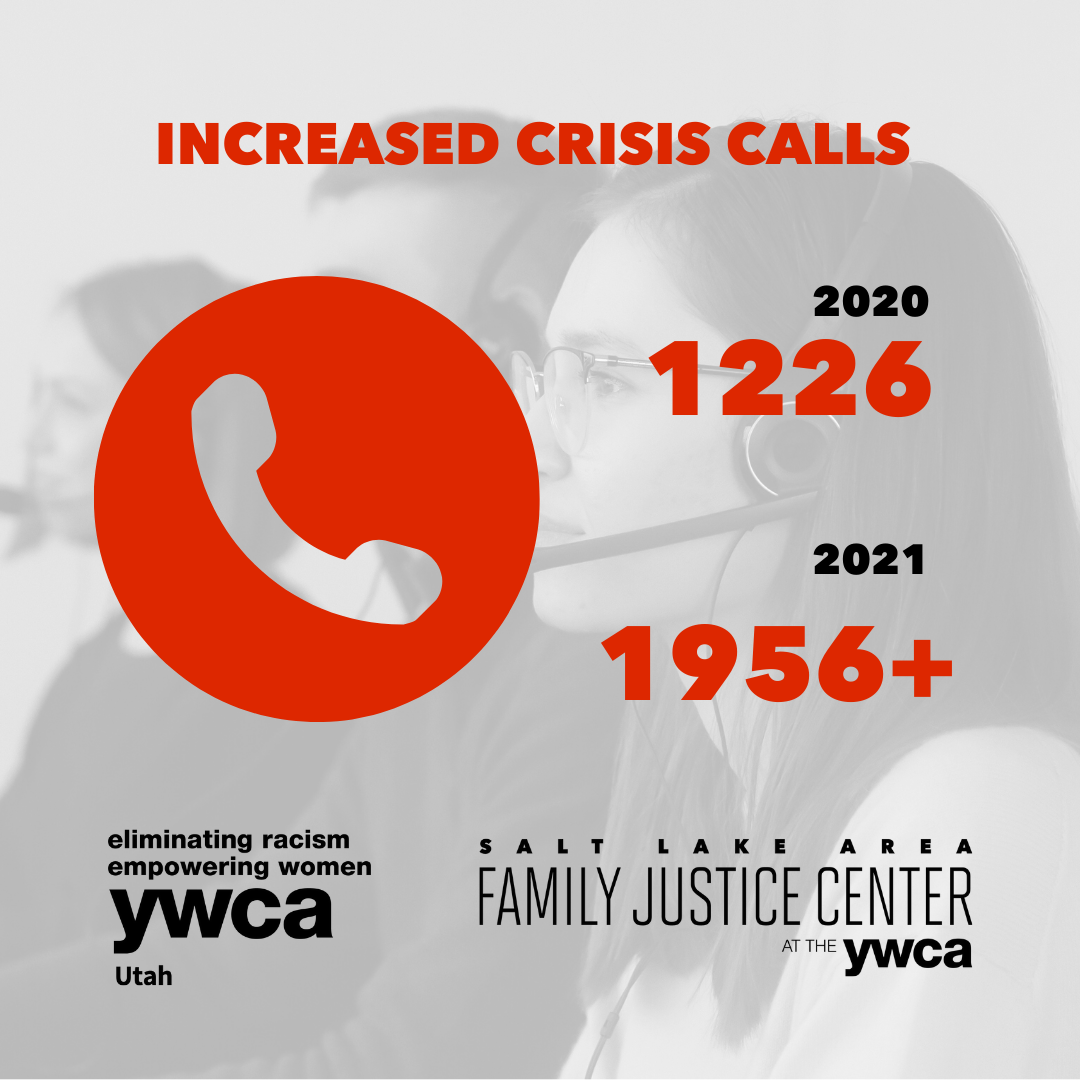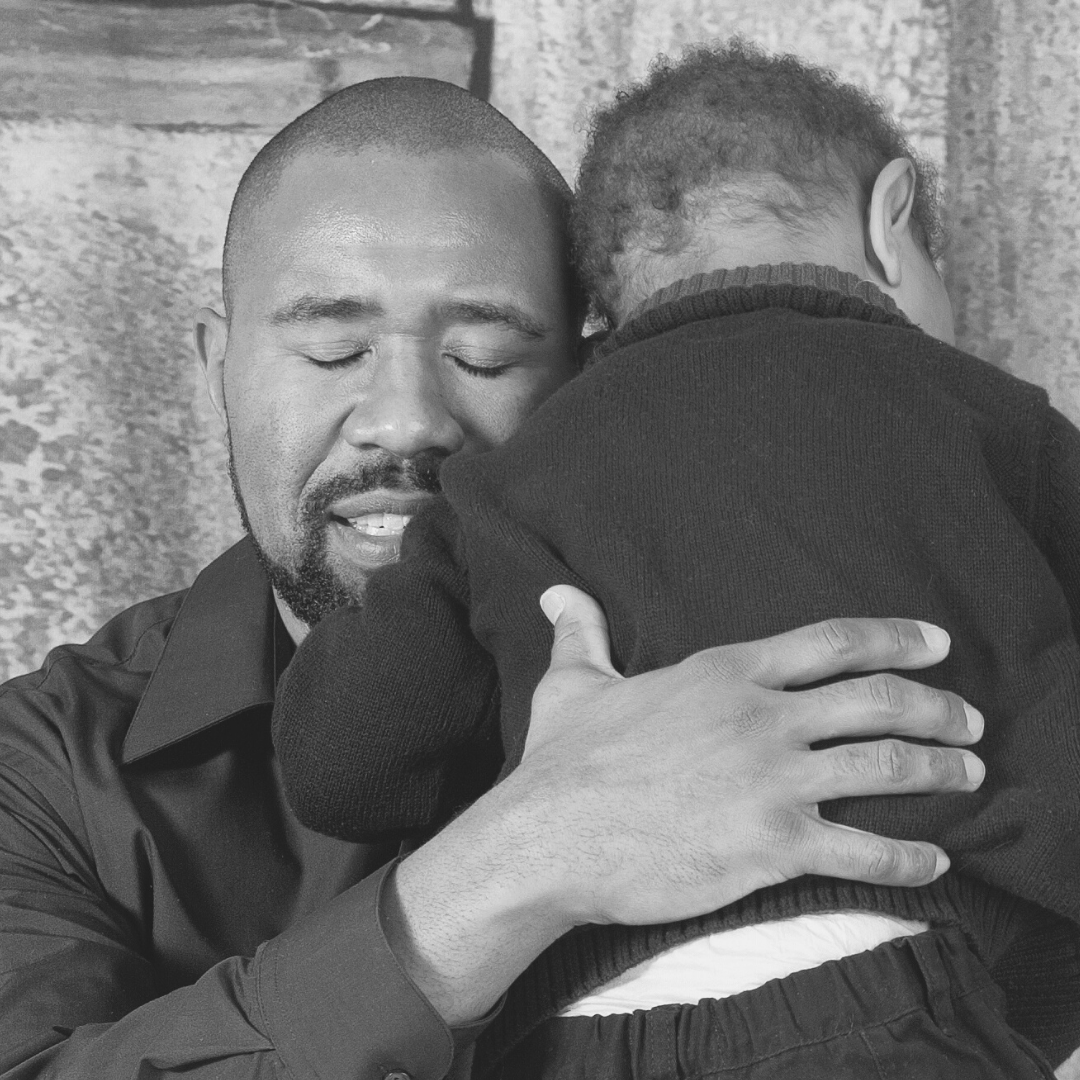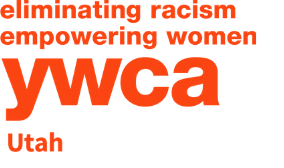Stories of Survivors - Crisis Calls are Life-Saving Calls
 Crisis calls are often times the first step in helping domestic violence survivors understand their resources, establish emergency plans, and get help in life-threatening situations. In 2021, crisis calls increased by 60% as the Covid-19 pandemic continues to exacerbate violence in the home.The Salt Lake Area Family Justice Center is a first line of defense for survivors seeking help, and we partner with community organizations across Utah to get survivors on the path to housing stability and a steady income to support themselves and their families.While the work we do and the services we provide to our neighbors is challenging in itself, the global pandemic, lack of affordable housing, increase in domestic violence and homelessness and a global labor shortage - have all increased the difficulty in meeting survivor's needs.However, we continue to be proud of our skill and ability in adapting to meet the needs of our community, a skill which has enabled us to remain fully operational and open to all survivors, throughout all of the extraordinary challenges the past couple of years has presented. Even more extraordinary are the survivors and the safety and security they continue to achieve in the midst of so much adversity. Here is a recent example of a survivor success story:
Crisis calls are often times the first step in helping domestic violence survivors understand their resources, establish emergency plans, and get help in life-threatening situations. In 2021, crisis calls increased by 60% as the Covid-19 pandemic continues to exacerbate violence in the home.The Salt Lake Area Family Justice Center is a first line of defense for survivors seeking help, and we partner with community organizations across Utah to get survivors on the path to housing stability and a steady income to support themselves and their families.While the work we do and the services we provide to our neighbors is challenging in itself, the global pandemic, lack of affordable housing, increase in domestic violence and homelessness and a global labor shortage - have all increased the difficulty in meeting survivor's needs.However, we continue to be proud of our skill and ability in adapting to meet the needs of our community, a skill which has enabled us to remain fully operational and open to all survivors, throughout all of the extraordinary challenges the past couple of years has presented. Even more extraordinary are the survivors and the safety and security they continue to achieve in the midst of so much adversity. Here is a recent example of a survivor success story: A single father contacted the Family Justice Center (FJC) in crisis. His abusive partner had just been released from jail, where she was being held after attacking him and their infant son. While on the crisis call, the abusive partner came to the door and began trying to break in. Using a safety plan created earlier in the call, the FJC guide was able to calm the father, call 911, and remain on the line. When the abusive partner left, the FJC guide supported the father as he grabbed his “go-bag”, left the apartment, and stayed in a safe place until police arrived.The father was brought to the Family Justice Center and sheltered by our Women in Jeopardy program. While staying with YWCA Utah, the father was able to complete a protective order for him and his child, gain custody, establish income, work with the housing team, and eventually move him and his child into an affordable apartment. YWCA Utah was able to offer him short term assistance while he stabilized his new home and became self-sufficient.
A single father contacted the Family Justice Center (FJC) in crisis. His abusive partner had just been released from jail, where she was being held after attacking him and their infant son. While on the crisis call, the abusive partner came to the door and began trying to break in. Using a safety plan created earlier in the call, the FJC guide was able to calm the father, call 911, and remain on the line. When the abusive partner left, the FJC guide supported the father as he grabbed his “go-bag”, left the apartment, and stayed in a safe place until police arrived.The father was brought to the Family Justice Center and sheltered by our Women in Jeopardy program. While staying with YWCA Utah, the father was able to complete a protective order for him and his child, gain custody, establish income, work with the housing team, and eventually move him and his child into an affordable apartment. YWCA Utah was able to offer him short term assistance while he stabilized his new home and became self-sufficient.
